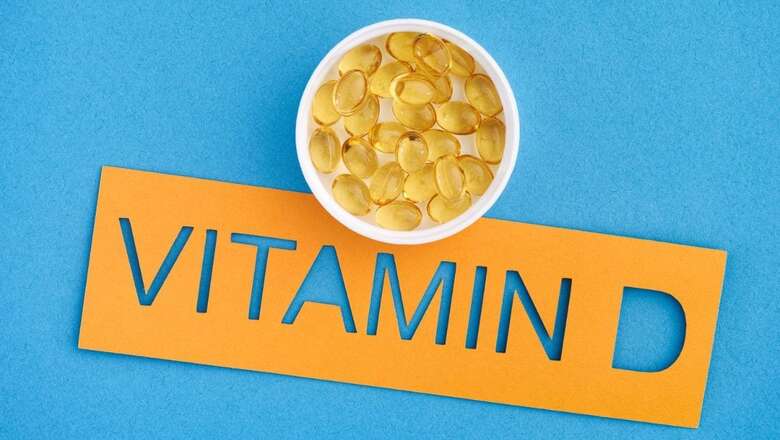
views
Vitamin D is a fat-soluble vitamin that belongs to the D family, which also comprises vitamins D1, D2 and D3. When you are directly exposed to sunlight, your body naturally creates vitamin D. To ensure proper levels of vitamin D in your blood, you can also receive it from particular meals and supplements.
Nutrients and vitamins are required to keep the body healthy. If there is a vitamin deficiency in the body, a variety of complications may arise. Around 1 billion people worldwide have inadequate vitamin D levels. According to one study, about 42% of people in the United States are vitamin D deficient. This proportion rises to nearly 63% among Hispanic adults and 82% among African American adults. Let us take a look at the symptoms of vitamin D deficiency:
- Back painInadequate vitamin D levels may cause bone and lower back pain. Vitamin D promotes bone health by boosting calcium absorption in the body. In one study of 98 people with lower back pain, lower levels of vitamin D were connected to more severe pain. Another research, however, discovered that this connection was inconsistent across other similar investigations.
- DepressionVitamin D insufficiency has been linked to depression, particularly in older people but some research findings are contradictory. The effects of vitamin D supplements have been inconsistent. However, some studies have suggested that they can help reduce symptoms of depression.
- Hair lossAlthough data is limited, low vitamin D levels have been linked to hair loss. Low vitamin D levels, in particular, have been linked to alopecia areata, an autoimmune illness characterised by dramatic hair loss. In one study of people with this illness, lower vitamin D levels were linked to more severe hair loss. Another study of 48 people with alopecia found that using a synthetic version of vitamin D for 12 weeks enhanced hair regrowth considerably.
- Weight gainOne study discovered a probable relationship between low vitamin D levels and both belly fat and weight gain. While vitamin D deficiency has been linked to obesity, further research is needed to understand the exact connection between vitamin D and body fat.
It might be tough to identify if you are deficient in vitamin D because the symptoms can be mild. It is possible to be deficient in vitamin D without feeling any symptoms. As a general guideline, if you detect any possible symptoms, especially if you have any risk factors, consult a doctor to check for vitamin D deficiency.

















Comments
0 comment